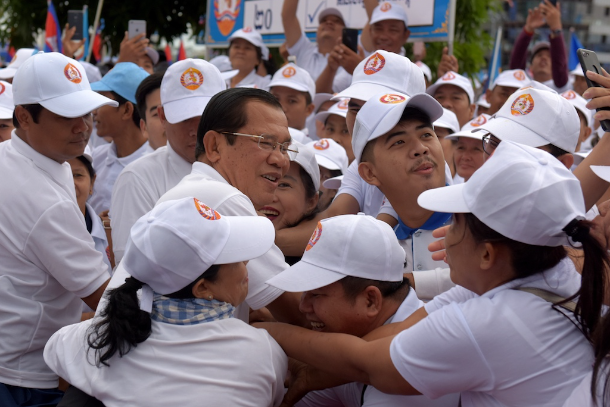Cambodia’s China Connection
July 13, 2018 | Expert Insights

According to an American security firm, Chinese hackers have been trying to infiltrate into Cambodian electoral systems ahead of upcoming elections. The findings come amidst increasing Chinese influence in the Southeast Asian nation.
Background
The People’s Republic of China (PRC) is a one-party sovereign state in East Asia. It is the world’s most populous country, sharing land borders with numerous states such as India, Nepal, Pakistan, Bhutan, Laos, Vietnam, Russia, Mongolia and Afghanistan among others. China emerged as one of the world's earliest civilizations, with some of the most advanced technologies of the time such as the art of papermaking and the invention of the compass, gunpowder and printing.
Cambodia, also known as Kampuchea, is a country located in the Indo-China peninsula in Southeast Asia. It is bordered by Thailand, Laos and Cambodia. The ancient Khmer kingdom, which built the monumental temple compound of Angkor Wat – a UNESCO World Heritage Site today, facilitated the spread of Hinduism and Buddhism across Southeast Asia.
Although China and Cambodia do not share a contiguous border, they have had historical, cultural and commercial relations. China’s support for Cambodia has been unwavering since the two countries first formed diplomatic ties in 1958 under late king Norodom Sihanouk. China has maintained a constant flow of aid to the south. It served as a counterweight to the dominating influence of Vietnam during the late 20th century. China’s “no strings attached” aid has helped war-torn Cambodia build a modern infrastructure.
Analysis
A month-long investigation by a California based security research firm called FireEye has stated that a Chinese hacking team has penetrated computer systems belonging to Cambodia’s National Election Commission (NEC), opposition leaders and media in the months leading up to Cambodia’s July 29 elections. Although there is no evidence that Chinese hackers are working to sway Cambodian elections in the ruling party’s favor, the revelations have cast a murky geopolitical shadow over the elections. Investigators were unsure if any data had been stolen or altered.
The head of cyber spying analysis of FireEye, Benjamin Read, said malware-ridden files sent to Cambodian targets were traced by his team to an unsecured server operated by the Chinese hacking group TEMP.Periscope. They found records showing that the group had compromised Cambodia’s election commission and several Cambodian ministries. Cambodian diplomats serving abroad, human rights and pro-democracy activists critical of the government as well as media outlets were targeted. Stories from international and Cambodian online media including The Phnom Penh Post, Reuters and Asia Times, were infected with malware and used as bait to gain access to computer systems. TEMP.Periscope is alleged to be state-linked because it seems to be seeking information beneficial to the Chinese government. It is also the second most active Chinese hacking group FireEye has ever traced.
The current Prime Minister of Cambodia Hun Sen, one of the world’s longest-serving rulers, is a staunch ally of China. He had jailed opposition leader Kem Sokha last year, accusing him of treason. The main opposition party was also banned from contesting the ballot. China publicly stepped in to support PM Hun Sen and donated $20 million to Cambodia’s National Election Committee, after the European Union (EU) and USA withdrew their support, escalated threats of sanctions and demanded the release of its imprisoned leader Kem Sokha. China has also pledged $100 million in military aid to the country.
Relatives of Kem Sokha, including his daughter Monovithya, have been frequently targeted by hackers. “To know that a foreign group is specifically trying to get information from me — now that’s scary,” Kem said from Washington, where she is based. The Cambodian election commission has filed a legal complaint to the Cambodian government.
China’s Foreign Ministry has denied all allegations and stated that it is not aware of the existence of TEMP.Periscope. It even stated that “China calls on the international community to combat cybersecurity threats on a respectful, equal and mutually beneficial basis.” While FireEye’s findings on Wednesday did not include Taiwan, China has long been testing its cyber capabilities there.
Assessment
Our assessment is that the upcoming elections in Cambodia might neither be free nor fair. We believe that Cambodia needs to step up its protection of online data, especially relating to national security, the election and financial matters. We feel that China’s domination in Cambodia is creating a quasi-colony.








Comments